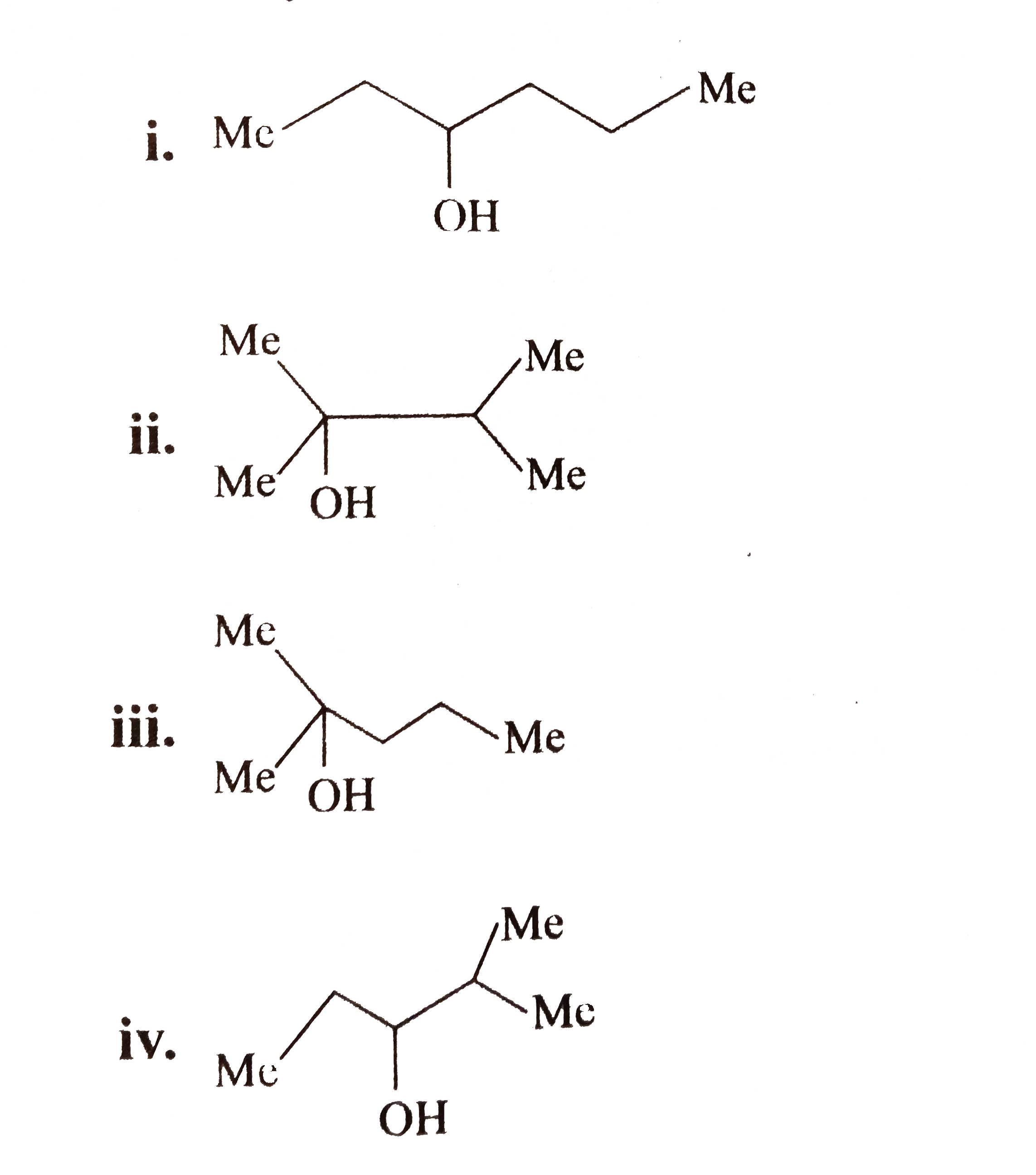Why are secondary and tertiary alcohols not suitable for praparing ethers by dehydration with conc. H2SO4 ?
Video Solution
Text Solution
Both secondary and tertiary alcohols react wih conc. H2SO2 according to SN1 mechanism in which carbocation intermediates are formed. These intermediates preferbly lose a H+ ion from β carbon leading to alkenes as a result of elimination rather than taking part in subsitutio reactions forming ethers. For details, consult methods of preparation of ethers (section 22)
|
Similar Questions
Knowledge Check
Which of the following yields But-2-ene on dehydration with conc. H2SO4 ?
A2-Methyl-2-butanolB2-PropanolC2-Methyl-2-propanolDSecondary butyl alcoholAcetone on heating with conc. H2SO4 mainly gives
AmesityleneBmesityl oxideCtolueneDxylene.Acetone on heating with conc. H2SO4 mainly gives
AmesityleneBmesityl oxideCtolueneDxylene.
 on dehydration with conc. H2SO4 forms predominantly :
on dehydration with conc. H2SO4 forms predominantly :
View SolutionWhen aluminium is heated with conc. H2SO4
View SolutionOxalic acid on treatment with conc. H2SO4 gives
View SolutionAcetone on heating with conc. H2SO4 mainly gives
View SolutionWhich of the following alcohols on dehydration with conc. H2SO4 will yield But-2-ene ?
View Solution

